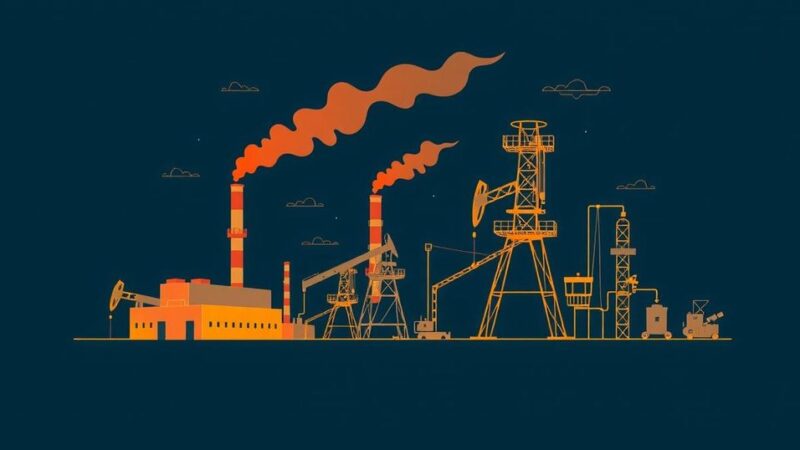The commentary by Professors Schipper and Mukherji in Science critiques the potential negative impact of questioning the measurability of climate change adaptation funding. They advocate for a focus on effective planning to prevent maladaptation, highlighting the need for robust funding mechanisms to support vulnerable populations while cautioning against narratives that could undermine financial support for essential adaptation strategies.
The upcoming UN Climate Change Conference (COP29), taking place from November 11 to 22, 2024, in Baku, Azerbaijan, is set to tackle the crucial subject of financing climate change adaptation strategies. Professors Dr. Lisa Schipper from the University of Bonn and Dr. Aditi Mukherji, Director of the CGIAR Climate Impact Platform, have published a commentary in Science cautioning against the misuse of perceived challenges in measuring adaptation strategies as a rationale for reducing funding. Both experts have previously contributed to the Sixth Assessment Report of the Intergovernmental Panel on Climate Change (IPCC). Ongoing debates among nations focus on the financing of climate adaptation measures, concerning who bears the cost and how success should be quantitatively assessed. Professor Schipper articulates the potential dangers of decision-makers rejecting measurable adaptation success due to its supposed complexity, warning this perspective could significantly hinder funding availability. The lack of robust adaptation indicators is a pressing concern for many countries in the Global South as it threatens their ability to argue effectively for financial support. Schipper emphasizes that without these indicators, funding may become increasingly inaccessible. Both researchers assert that maladaptation occurs primarily due to improper planning and execution of adaptation strategies. They highlight that external donors who fail to understand the regional context can exacerbate this issue. Despite ongoing challenges, there have been notable advancements in adaptation initiatives globally over the past decade, with numerous successful implementations that can serve as learning examples. A specific instance of maladaptation is associated with irrigation, where it is often criticized for generating unequal resource distribution and encouraging unsustainable farming practices. However, Mukherji explains that irrigation is not inherently negative; it becomes problematic only when employed improperly, such as in arid regions where water-intensive crops are grown. When managed correctly, irrigation can be a vital resource for food security in impoverished agricultural sectors. The narrative rarely acknowledges the underlying factors contributing to vulnerability to climate change—such as social exclusion based on ethnicity, religion, or political affiliation, which often forces marginalized groups into flood-prone areas. Rather than discouraging settlement in these vulnerable zones, enhancements such as early warning systems should be prioritized. In concluding their commentary, Schipper and Mukherji suggest that maladaptation serves as a cautionary tale and provides a framework for refining adaptation efforts. They propose a climate reparations initiative to offer funding to the most affected populations unconditionally, noting the disproportionate responsibility these communities bear for climate change. According to UNEP, the annual funding for adaptation measures could reach hundreds of billions, a target still far from reality, as highlighted by Mukherji in reference to the Adaptation Gap Report 2024. Schipper reinforces that it is imperative that funding is utilized effectively to align with developmental needs and minimize maladaptive consequences.
The discourse surrounding climate change adaptation finance remains a contentious one, particularly as nations grapple with how best to support vulnerable populations. The upcoming COP29 signals an opportunity for significant dialogue on this issue, with scholars and practitioners advocating for robust frameworks to secure necessary funding. The insights from Schipper and Mukherji draw attention to the implications of maladaptation narratives while underscoring the pressing need for evaluative measures to assess the success of adaptation strategies.
In summary, the dialogue led by Professors Schipper and Mukherji on climate change adaptation brings to light the complexities surrounding funding and the implications of maladaptation. Their warning against the misuse of measurement challenges serves as a critical lens through which to view adaptation financing. Through effective investment and attention to equitable practices, it is possible to enhance the resilience of vulnerable populations while transforming the narrative around adaptation efforts from a cautionary tale into one of proactive improvement.
Original Source: www.cgiar.org





